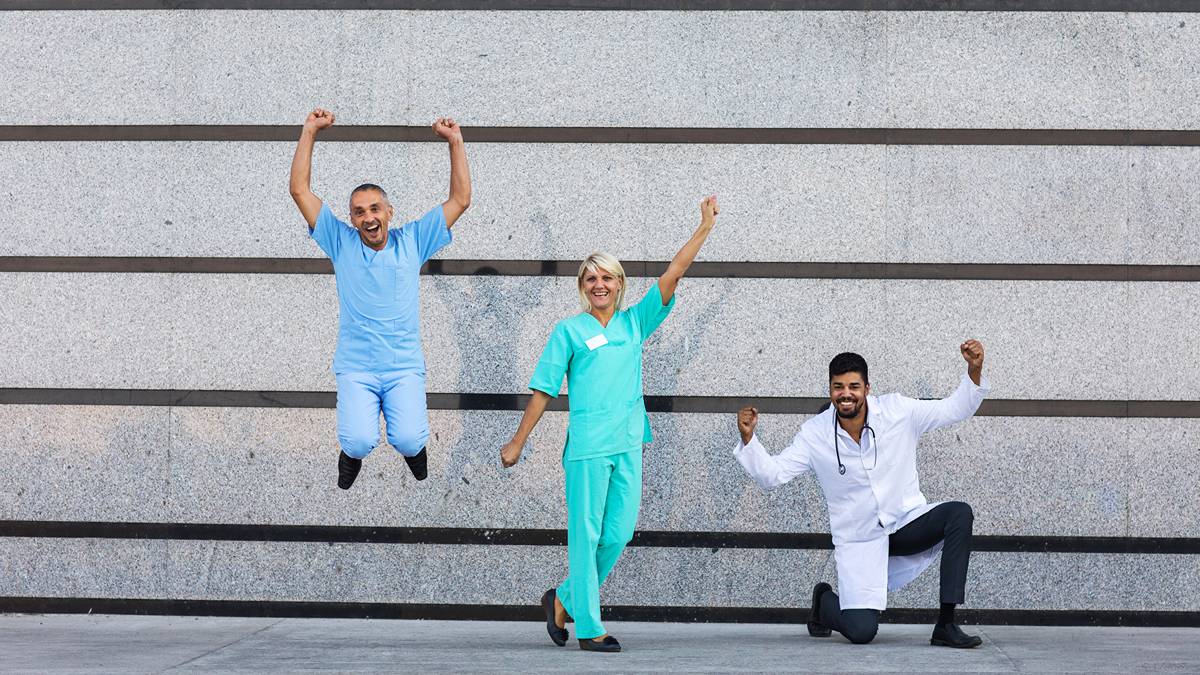Health Check: Joy as Mesoblast wins its first FDA approval for a stem-cell therapy after decades of trying

Pic via Getty Images
- History is made as the FDA approves Mesoblast’s Ryoncil for paediatric graft-versus-host disease
- LTR Pharma firms up a compact with the Mens Health Downunder network
- The paperwork’s in! Orthocell files US approval application
Just as a week can be a long time in politics, 24 hours can be an eternity in biotech.
Following Percheron Therapeutics’ (ASX:PER) trial disappointment yesterday, Mesoblast (ASX:MSB) today announced the joyous news that the US Food and Drug Administration (FDA) finally has approved Ryoncil, Mesoblast’s therapy for peadiatric graft-versus-host disease (GvHD).
Apart from a GvHD approval in Japan, this marks the first time one of Mesoblast’s stem cell therapies has been approved after years of trying.
The consent is also the first on the part of the FDA for any mesenchymal stromal cell therapy, of which Ryoncil is an exemplar.
The approval is relevant for children aged two months and older, including adolescents and teenagers. Resulting from bone marrow transplants, GvHD is a life-threatening condition with high mortality rates.
Ryoncil applies to patients resistant to steroids, the standard-of-care treatment.
In the US about 10,000 patients undergo a bone marrow transplant annually with donated tissue, 1500 of whom are children. About half of them will develop GvHD and 50% of these won’t respond to steroids.
“Ryoncil’s immunomodulatory effects, including inhibition of T-cell activation and secretion of pro-inflammatory cytokines, position the therapy for potential other indications in diseases with excessive inflammation,” the company says.
Mesoblast CEO Dr Silviu Itescu says the company will work closely with the FDA to win approval for its other late-stage products, including Revascor for cardiovascular diseases and rexlemestrocel-L for inflammatory pain.
Mesoblast shares vaulted 28% to $2.53 this morning. The stock has soared 740% this year in expectation of approval, but today’s jump shows investors really needed to see it to believe it.
LTR strikes local deal for its ‘nasal Viagra’
Blokes needing a little help in the bedroom department will soon be able to access LTR Pharma’s fast-acting erectile dysfunction (ED) treatment via an access agreement with the country’s biggest men’s health network, Mens Health Downunder.
Mens Health Downunder has an extensive referral network of GPs, urologists, and sexual health clinics that currently serve more than 1000 patients.
LTR Pharma’s (ASX:LTP) nasal spray Spontan – as in spontaneous – is yet to be approved by the Therapeutic Goods Administration. But Spontan is eligible for the agency’s local Special Access Scheme and Authorised Prescriber Scheme, which allow unapproved treatments to be administered.
“This partnership aligns with the company’s strategy to introduce Spontan through trusted healthcare providers, while gathering valuable real-world patient data,” LTR Pharma says.
In particular, the network is expected to provide feedback on pharmacy and patient needs – including packaging design – which will help with shaping the expected full commercial rollout next year.
As with ED treatments such as Viagra and Cialis, Spontan’s active ingredient is a PDE5 inhibitor which targets receptors that relax muscles and increase blood flow to the penis.
But being nasally rather than orally delivered, the drug hits the bloodstream within nine to 15 minutes rather than an hour or more.
About 50% of men stop taking the oral tablets within a year, because of the timing problem and side effects.
The company plans to lodge a marketing application to the TGA – and then to and the US Food & Drug Administration (FDA) – early to next year.
LTR Pharma is standing proud share-price, having listed a year ago at 20 cents apiece. The stock is up 140% year to date and in mid-October was 480% to the good before some detumescence crept in.
This morning the shares were 4.5% lower at 80.5 cents.
Orthocell eyes US approval – and commercial sales – next year
Hero biotech Orthocell (ASX:OCC) has submitted a US marketing approval application for its nerve-repair product Remplir.
The FDA application is under the 510(k) predicate device route, which is easier than pursuing de novo (new device) status.
Allowing for festive season interruptions the FDA has 90 days to decide on the application. This implies clearance in late March or early April, with commercial distribution slated to start “soon thereafter”.
Approval would open a US$1.6 billion ($2.5 billion) market to Remplir, which already is approved in Australia, New Zealand and Singapore.
The Remplir nerve wrap is a sterile, implantable and resorbable collagen membrane, for use in managing peripheral nerve injuries.
This month the company released the “outstanding” results of its local study to support US approval, which reiterated previous findings of “consistent and predictable” return of upper arm and hand function following Remplir nerve repair.
The company has also chalked up its first Singaporean Remplir sales.
Orthocell shares have more than doubled this year and this morning traded at 4.4% lower at $1.20.
Tryptamine reports positive IBS results
On Monday we mentioned Anatara Lifesciences (ASX:ANR) and the rapid take-up of its phase II irritable bowel syndrome (IBS) clinical trial – but they are not the only ones tackling the common and annoying condition.
While Anatara’s treatment derives from pineapple stems, Tryptamine Therapeutics (ASX:TYP) is deploying ‘magic mushrooms’ (psilocybin) in its phase 2a, open-label IBS trial, taking place at Boston’s Massachusetts General Hospital.
The trial is recruiting up to ten patients, with four patients dosed. Of these, three achieved a “clinically meaningful” reduction in abdominal pain and gastro-intestinal associated anxiety.
The trial combines the company’s drug candidate TRP-8802 with psychotherapy.
The results are intended to be a springboard for the company to pursue commercialisation with its favoured intravenously-delivered variant, TRP-8803.
Tryptamine is also tackling binge-eating disorder and fibromyalgia-related pain.
Tryptamine shares had a good year, soaring from 2 cents to as high as 5c, partly on speculation the incoming Trump administration will be well-disposed towards psychedelic therapies.
In a less-heralded local reform, the NSW government has removed the need for psychedelic therapies to be carried out only in licensed hospitals, thus alleviating bottlenecks caused by the limited availability of such facilities.
Of course, the work still must be carried at suitable sites under the guidance of psychiatrists, under the auspices of the TGA’s Special Access Scheme.
Lobbyist Mind Medicine Australia and Legalise Cannabis NSW Party advocated for the changes, which aligns NSW with other states.
Tryptamine shares were steady at 3.8 cents.
At Stockhead, we tell it as it is. While LTR Pharma, Tryptamine and Orthocell are Stockhead advertisers, they did not sponsor this article
Related Topics

UNLOCK INSIGHTS
Discover the untold stories of emerging ASX stocks.
Daily news and expert analysis, it's free to subscribe.
By proceeding, you confirm you understand that we handle personal information in accordance with our Privacy Policy.








